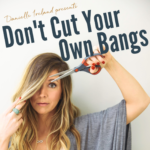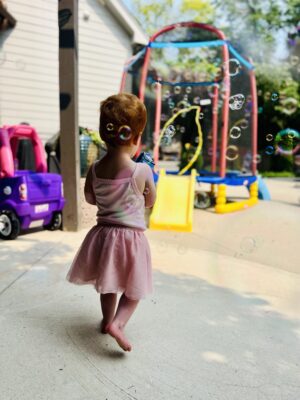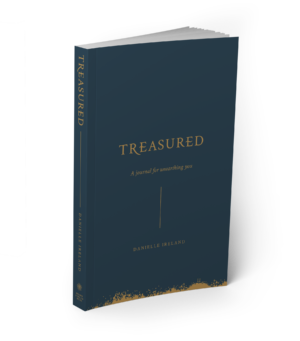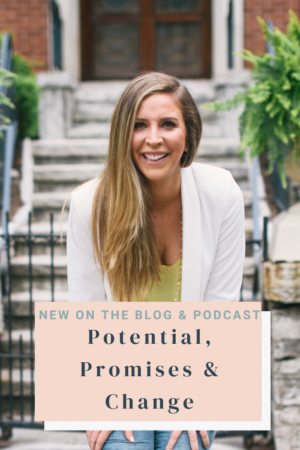This is not and easy question to answer, at all.
I believe, and know through experience that people CAN change. Recovery, healing, growth – are all examples of the change process. And, what is also true, is that oftentimes change is hard, change is intentional, takes commitment, can be an investment, can happen in an instant while remaining permanent, or take a lifetime to achieve. With all of these variables, there is one constant – change has to be wanted by the one who is changing.
No one can love you, hurt you, push you, teach you, motivate you, inspire you, will you or push you into REALLY changing. Never, not ever.
I’ve worked with clients who were lead into therapy by their partners, sat across from people who used the language of “We really need to work on X, Y and Z.” But, what they meant was, “They need to change X, Y and Z.”
Sometimes, these individuals turn a corner, and begin to make some sincere efforts. Sometimes not. I’ve worked with clients who had their first true breakthrough towards ending a painful relationship cycle two years into their therapy.
When change happens, the elements that each person has in common, myself included, are the following:
- They really wanted to change
- They were ready to change
When it comes to one’s potential, we ALL have it. This I believe with all my heart.
But,
- we can like the idea of something
- know logically that something is going on
- feel bad when we hurt someone
- have the same issue over and over again
- compartmentalize or deny addictive behavior (which means on some level we know)
- see someone have something we want
- be handed a list to “fix” our life
And, still not be ready. And, still not be sure we really want to do it.
There are less talked about contemplative stages of change. The thinking, processing, playing with or pretending before we’re ready. This is valid, and true. And, sometimes we never leave this stage and step into the uncertainty of trying something new.
Which leads me to an important question to consider when looking at our relationships with other people – Am I in a relationship with their potential, or their behavior?
If you’re answer is somewhere in the middle, another follow up question would be – If I believe they are trying their best, I see their potential, and I am living with the consequences of their behavior; is their best enough for me?
Podcast Feature
Ep 52 – How Do You Know When You’re on the Path to Healing? (Originally recorded June 24, 2020.)

When doing the emotional work toward healing and recovery, you will at times wonder whether you’re on the right path. Eventually and inevitably, you will ask how you know when you’re “done” or how you know when you’re healed. These are important questions, so I want to revisit a discussion that explores what it means to heal, how we can identify areas that need attention, and how we can gauge our progress.
In this episode of Don’t Cut Your Own Bangs, I delve into how our bodies can help us pinpoint areas that need healing and the nuances that differentiate being triggered from feeling activated. The level of activation we feel with painful emotions—anger, grief, worry, frustration, and sadness—can tell us a lot about where we are on our journey. The less these emotions consume us, the more healed we become.
One useful way to test our level of activation is through journaling about our relationships, memories, and experiences. If you’ve tried journaling, but find yourself getting stuck—not knowing what to write or having trouble going deep—I invite you to get a copy of the Treasured Journal. The Treasured Journal includes questions, prompts, and sentence stems that will help you open up and benefit from journaling. You can get the journal and its companion meditation guide at this link, or read more info below.
You can always catch the latest episode by subscribing to the Don’t Cut Your Own Bangs podcast on iTunes or Spotify.
What I’m Loving

I’m still deep in The Myth of Normal, by Dr. Gabor Mate and processing the following quotes. But to remind myself that joy and light and wonder are still present too, I decided share this moment with my daughter. This photo was taken Sunday afternoon, outside, after nap time, with her new favorite obsession, bubbles.
“Addictions represent, in their onset, the defenses of an organism against suffering it does not know how to endure.”
“Genuine happy memories do not rule out emotional suffering, but the usual bias is to recall the former and to suppress awareness of the latter … even people with the most insistent “happy childhood” narrative will … very quickly come to realize that their autobiography has been riddled with blind spots.”
Dr. Gabor Mate“Whatever the degree of injury, all addiction is a kind of refugee story: from intolerable feelings incurred through adversity and never processed, and into a state of temporary freedom, even if illusory.”
Stay connected
Even if emails are delayed, you can expect new and original content from me every week in the following places:
- Instagram (100% my comfort zone)
- Facebook (Post about 3x a week)
- TikTok (little by little/getting there/learning)
Need some more support?

The Treasured Journal & Mediation Series
- A 7 part guided journal to help you deepen your relationship with the most important relationship in your life – the one between you and you.
If you have any thoughts, Q’s or topics that you want me to cover send your thoughts to da******@*************nd.com and use the subject line Topic Idea.
The best things in life are shared. Share this email with someone you love and invite them along!

